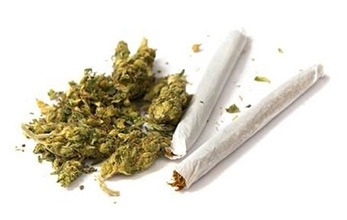Below is the Executive Summary from 'Smart Approaches to Marijuana' regarding the rescheduling of marijuana.
Texas Narcotic Officers Association
Jan 18, 2024

On August 30th, 2023, the Department of Health and Human Services (HHS) announced it recommended the reclassification of marijuana to Schedule III to the Drug Enforcement Administration (DEA). Four months later, HHS released an unredacted version of its recommendation to reclassify the drug. The 252-page review had been hidden from the public and was only released after legal action was threatened against HHS.
This HHS recommendation is based on cherry-picked data and represents a weak and intellectually dishonest argument to reschedule marijuana. This summary describes just a few of the many flaws in the HHS methodology and conclusions. SAM’s full report provides an in-depth analysis of what the HHS got wrong and how the process could have been strengthened.
- In years past, the FDA, an agency of the HHS in charge of approving medicinal drugs, used an established five-factor analysis in determining whether Schedule I drugs have “currently accepted medical use.” In the current report supporting the recommendation to reschedule marijuana, the FDA changed these criteria to get its desired answer.
If marijuana had been held to the same standards as other drugs, it would not be deemed to have “currently accepted medical use,” due to the infeasibility of measuring all strains and the insufficient amount of existing research into its safety and efficacy. In fact, the FDA’s new two-factor test explicitly states that studies used to support marijuana’s accepted medical use do not need to be controlled, a standard that was required in the five-factor test (save an evaluation done by a consensus of experts).
- It is not clear why the FDA moved away from the five-factor test, unless the agency approached the rescheduling review with a pre-determined conclusion.
The five-factor test has been used for decades by Republican and Democratic Administrations. Additionally, the United States Court of Appeals for the District of Columbia Circuit examined and validated the test in Alliance for Cannabis Therapeutics v. Drug Enforcement Administration. The marijuana industry petitioners in that case even conceded that the five-factor test had no flaws, as explained in the opinion for the court.
- The FDA now considers the existence of state medical marijuana programs as evidence that marijuana has currently accepted medical use.
A drug’s popularity among the public has never been used as a standard to determine medicine. Supreme Court Justice Steven Breyer in Gonzalez v Raich (545 U.S. 1 (2005), a case involving a medical necessity for the use of marijuana, opined during oral arguments that “medicine by regulation is better than medicine by referendum.” The Court’s 6-3 decision, which Justice Breyer joined, upheld the prohibition of marijuana for medical use under the Controlled Substances Act (CSA). The FDA’s novel standard in recommending marijuana’s rescheduling is rooted in a logical fallacy: some people say that marijuana is medicine, so marijuana must be medicine. The FDA is delegating its authority to determine that medications are safe and effective to popular opinion, a practice that not only exceeds the statutory authority of the agency but makes a mockery of the congressional intent of the Food, Drug, and Cosmetic Act to protect the public health. Following the FDA’s logic, psychedelic drugs, which are seeing a popular push for medical legalization, could also be considered medicine and be rescheduled due to shifting public opinion.
- The FDA compares marijuana to a limited, hand-picked list of other controlled and noncontrolled substances (e.g., heroin, alcohol, cocaine), not all Schedule I drugs.
In the recommendation, the FDA measured marijuana’s potential for abuse by comparing it to a hand-picked selection of Schedule I, II, and III drugs. For example, the FDA compared marijuana to heroin, another Schedule I drug. The recommendation claims that because marijuana has a lower abuse potential than heroin, it shouldn’t be in the same category. Yet the FDA failed to compare marijuana to other Schedule I drugs, such as LSD. Comparing marijuana’s abuse potential against all Schedule I drugs would have allowed for a more rigorous analysis, but it would not have allowed the FDA to conclude that marijuana belongs in Schedule III. To qualify for Schedule III, a drug or other substance must have “potential for abuse less than the drugs or other substances in Schedules I and II” (21 USC 812(b)). Fifty years of data published by HHS show that marijuana does not meet this standard.
- None of the studies used by the FDA to justify its claim that marijuana is medicine support that conclusion.
The FDA
determined that marijuana is acceptable for medical use for
pain, nausea and vomiting, and anorexia. Only three studies
were used to justify this claim. The first (University of
Florida), concluded that results were “inconclusive or
mixed.” The second (National Academies of Sciences &
Medicine) relied primarily on a study for which the results
were not statistically significant. For the third (Agency
for Healthcare Research and Quality), the FDA concluded
that the positive effects of marijuana in the study were
small and that “the increased risk of dizziness, nausea,
and sedation [from marijuana use] may limit the benefit” (page
27 of 252). Furthermore, some of
these studies were with inhalable marijuana; prior FDA
evaluations have excluded inhalable marijuana studies
because of their unreliability and questionable
practices.
1 comment:
So the Feds turned a blind eye to some states breaking the drug laws for years and this resulted in the FDA decision? Can we concentrate on Opium Dens next?
Post a Comment